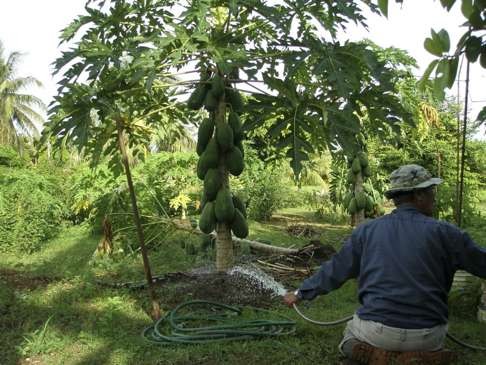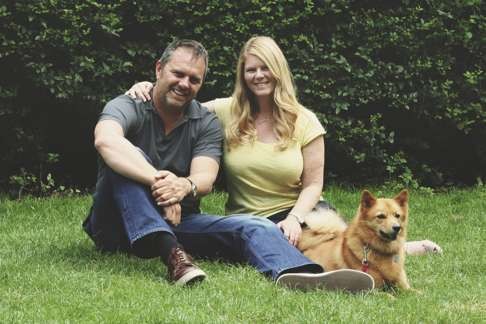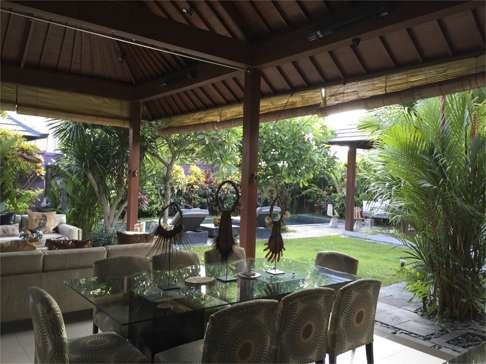

Thanks to the internet, travellers seeking memorable experiences without paying too much can choose from millions of places to stay around the world. If you want a more comfortable experience than couch surfing, and are willing to put in a few hours of pet care a day, or do some farm work or cleaning, you can find places to stay free of charge and have some new experiences. You can live locally, meet and interact with people far off the tourist track. Here are two ways how:
Organise a work exchange
Work exchanges involve a host offering free accommodation in exchange for a little of your time and skills each day. No money changes hands; you stay in their home while you assist with whatever is needed.
Farmers needing seasonal help or families seeking childcare can turn to work exchange websites to find travellers who are willing to work an average of four to six hours a day in exchange for free board and lodging.
WWOOF (World Wide Opportunities on Organic Farms) was set up by Londoner Sue Coppard in 1971, and now has operations in 60 countries, from China to Costa Rica and Switzerland to Sierra Leone. You can become a member by signing up to any of the country-specific networks (or independents for countries with no official site) for about HK$200 per year.
Workaway, established in 2002, is a better fit for those planning to work and travel in more than one country, as it lists hosts in 155 nations. A year’s membership with access the to full host database costs HK$225.

Alan Wilkinson and Alison Tipler, of Patuna Farm in New Zealand, wanted help on their sheep farm after their children left home. So far they have hosted more than 100 volunteers.
Workaway places emphasis on cultural exchange. The site was created by David Milward, who was inspired by his experience helping out at a hostel in Hawaii. Milward’s vision has recently been extended to The Workaway Foundation, where a small number of educational and environmental host projects in developing countries have been chosen to receive extra publicity, volunteers and financial support, as a way for the site to give back to communities in need.

Check host feedback. When sifting through host placements, read feedback from other volunteers, or ask to be put in touch with someone who has worked there.
Agree to the terms in advance, in writing, about what type of jobs you will help out with, where you will stay (a private room in the family home, or separate shared or private quarters), how many days off a week you get, and what type of food is available. Check if you need to bring anything specific, such as gloves, wellies or your own bedding.
Sort out the basic logistics. Ask for a contact telephone number and directions to your placement once you have fixed the dates. All the hosts I stayed with tended to be flexible about time. Some hosts offer to pick you up from the nearest bus or train station if you do not have transport or if they are far off the beaten track – as is often the case.
Stay in touch. Keep communicating with your hosts during and after the placement – they are hosts because they enjoy meeting people from around the world, and a good host will want to check on whether you enjoy and learn from your experience. I have become good friends and pen pals with several of my previous WWOOF and Workaway hosts; if you are on a career break, they can make excellent teachers and references.
Be a house-sitter
A house-sitter is someone who has agreed to temporarily live in a residence when the owners are away, staying for free in exchange for managing the property. The idea is that once you have taken care of your core responsibilities, which can include pet care, gardening and caretaking, you are free to live as a local and explore the area at your leisure.
As with work-exchange networks, the rise of peer-to-peer websites in recent years mean there are established networks of travellers who use house and pet sits to keep their costs down. These arrangements range from long weekends to holiday homes being looked after by house-sitters for months on end.
TrustedHousesitters has been connecting pet owners and pet lovers who travel since 2011. When asked about his inspiration for the site, Andy Peck, founder and CEO, recalls a memorable pet sit in Spain, where he was recovering from a near-death experience in the Andes in 2011.
“Spending time with [the dog] Dave became the best part of my trip, and it made me think that other people like me might want to house-sit for free in order to enjoy the company of pets,” he says.

As no money changes hands between hosts and travellers (the site charges sitters and owners HK$899 a year, which includes 24-hour access to vet advice and identity and criminal record checks), Peck estimates the company has saved members US$200 million in accommodation and pet care costs since the site launched.
Your profile will need to be strong and professionally presented. Include experience of previous house-sitting or being a homeowner. As most house-sitting jobs include looking after pets, draw attention to your love of, and experience of caring for, animals. Highlight any particular skills beneficial to house sitting, such as gardening, plumbing or carpentry.

Establish a dialogue. Hosts are unlikely to choose someone they have never seen or spoken to. I always found calling or setting up a video conference the best way to see if you are a good fit.
Photographer Slava Bowman agrees. Bowman and her partner Johnnie cat-sat in Chicago one Christmas after a Skype call with the owners. “It felt wonderful to know that complete strangers can trust us with their house and cat,” she says, and the owners can “rest assured that their home and pet will be in good hands while they are away.”
Stick to the guidelines. Everyone has their own way of doing things, but if the homeowner has specified when and how often they want their dog fed or flower beds weeded, follow their lead. Ask before you arrive about how to deal with mail, unexpected visitors or deliveries, and if there are any rooms or things out of bounds to you. Most homeowners will be happy for you to use their fridge and internet, so you can eat and work/communicate remotely while on the job.
Under-promise and over-deliver. Always aim to return the house to its owner in a better shape than they left it. I found that window cleaning, vacuuming or leaving behind a bottle of wine before you depart will go a long way to creating a lasting positive impression. After all, you might have just stayed at someone’s castle for nothing.
